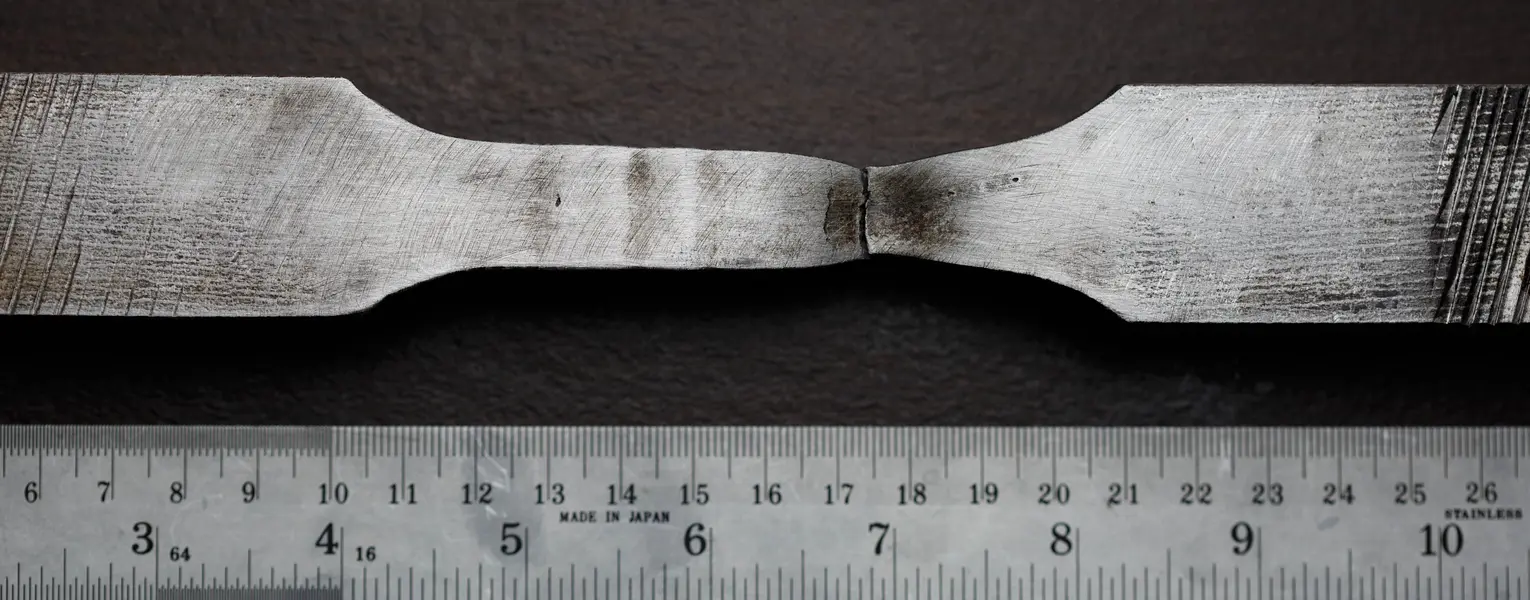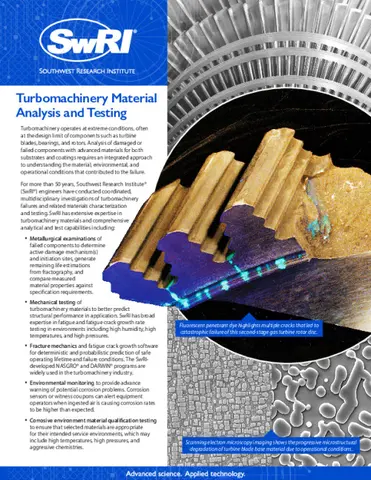Our Solid and Fracture Mechanics Laboratory (Solids Lab) provides test data for understanding the structural integrity of a specimen, coupon, subcomponent, or structural test element.
Uniaxial servohydraulic test frames are used for applying tension, compression, bending, or mixed loading modes on test samples. The laboratory also contains the instrumentation and data acquisition hardware required to measure and record load, displacement, strain, and other transducer data. Applications range from the simplest tensile test to variable-amplitude, spectrum crack growth (SCG) testing.
Capabilities
With more than 40 years of experience, the SwRI Solids Lab provides test data on:
- Tensile and compressive properties
- Fatigue, fatigue crack growth, and fracture toughness
- Specialized fracture mechanics
- High-rate constitutive properties
- Corrosion fatigue and high-temperature fatigue (including LCF and TMF)
- Metal Additive Manufacturing Services
- Metallurgical Analysis Laboratory
Facilities and Equipment
The 6,500 square-foot Solids Lab contains uniaxial test frames with closed-loop computer control capability. A partial list of equipment includes:
- More than 20 servohydraulic and three servoelectric test frames ranging from
- 1 to 200 kips
- Eleven fully automated fatigue crack growth test control systems (FTA) allowing K-control (for da/dN testing) and variable-amplitude SCG tests
- Seven LabVIEW 16-bit data acquisition systems and high-speed, transient
- 12-bit DSOs
- Direct and indirect potential drop for nonvisual crack measurement
- Extensometers, microprofilers, and strain amplifiers
- Resistance and quartz lamp ovens (2000 °F maximum)
- Induction furnaces (temperature grip limited) and molydisilicide element
- furnace (3600 °F)
- Enclosures for aggressive and high-temperature environments
- High-cycle fatigue frame (>1000 Hz)
- Split-Hopkinson Pressure Bar & Plate Impact Testing (120 and 340 ksi maximum stress)


